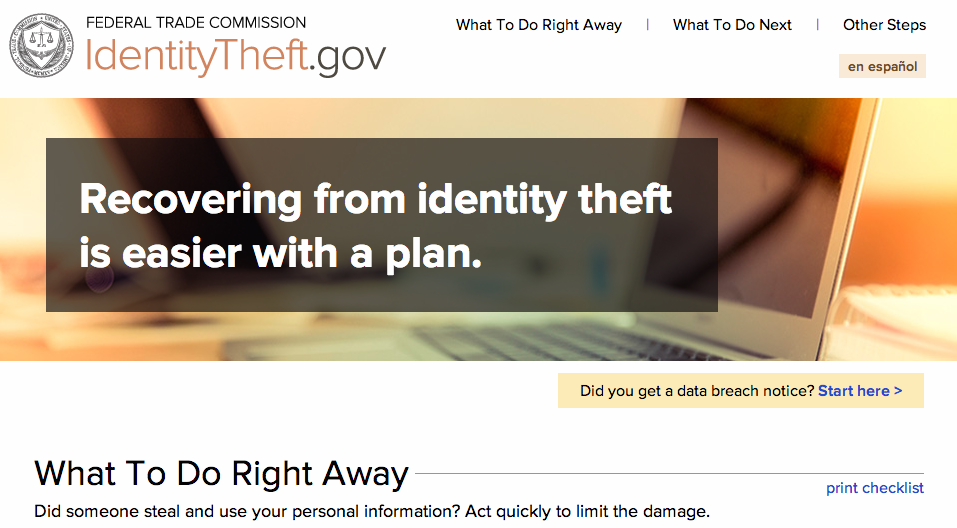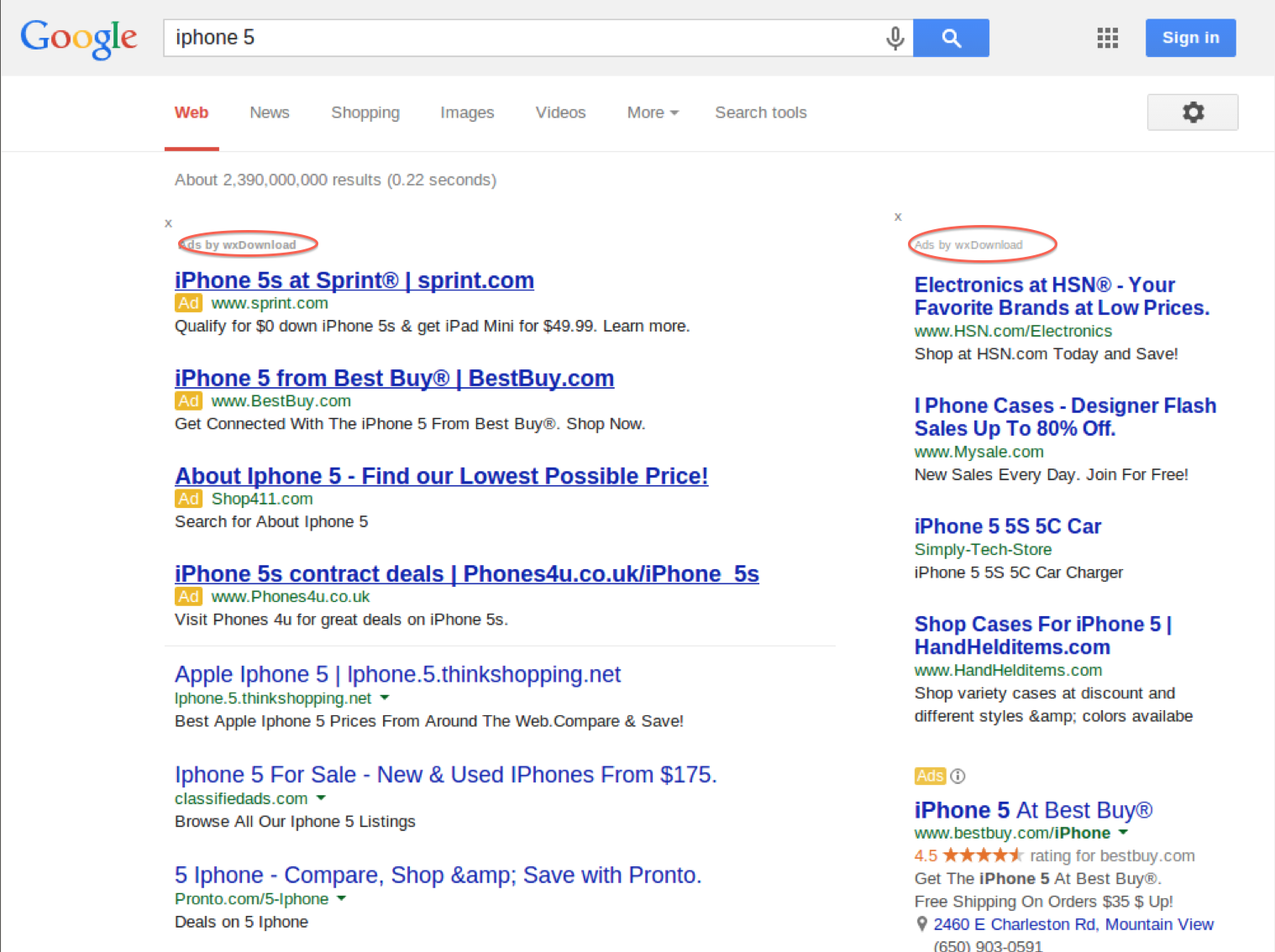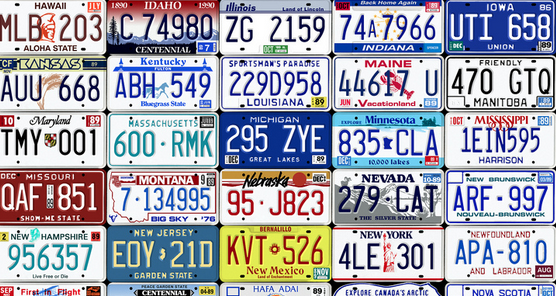While some Internet service providers are aching to track users’ every online move so they can analyze and sell that data, the FCC is warning these companies that the Commission will be taking a hard look at these practices after the new net neutrality rules kick in next month. [More]
privacy

Health Insurer CareFirst Latest Hack Victim
More than 1.1 million current and former members of CareFirst BlueCross BlueShield are among the latest victims of a cyberattack, the health insurer confirmed this week. [More]

RadioShack Will Not Be Selling Your Phone Number To New Owners
If you’re part of the 117 million or so names on RadioShack’s mailing list, we have good and bad news for you. Today, the Shack and various states’ attorneys general came to an agreement about what customer data may be sold to RadioShack’s new owners, and under what circumstances. Everyone has agreed that the Shack won’t be handing over customer phone numbers, but they also will be giving people on the mailing list only a week to opt out. [More]

IRS Investigating How Woman’s Tax Call Ended Up On Howard Stern Show
A woman in Cape Cod thought she was just talking to an IRS representative over the phone, but what she — and apparently the agent — didn’t realize was that their call, including her personal info, was being broadcast to listeners of Howard Stern’s radio show. [More]

The RadioShack Bankruptcy Consumer Privacy Report Is Out
The most controversial part of the RadioShack bankruptcy auction has been the proposed sale of the company’s extensive collection of e-mail addresses, phone numbers, and mailing addresses. Everyone from Apple to most states’ attorneys general objects to this sale, which goes against the company’s privacy policy. That’s why the bankruptcy court appointed a privacy ombudsman to evaluate the situation and lay out some rules for how that information will be passed to the new owners of the RadioShack brand…or not. [More]

United Offers “Bug Bounty” Of Up To 1 Million Miles For Hackers Who Find Vulnerabilities In Website, Mobile App
While big companies are known to quietly seek out the services of white-hat hackers to test for weaknesses in their networks and websites, it’s not every day that a major airline publicly offers a “bounty” to people who can diagnose vulnerabilities in its systems. [More]

FTC Rolls Out Interactive Resource For Victims Of Identity Theft
With seemingly daily reports of new data breaches and related scams, it’s no secret that identity theft is now more of a concern than ever. In an effort to help victims work their way through the process of restoring and protecting their identities, the Federal Trade Commission has launched a new online interactive tool. [More]

Sally Beauty Confirms “Illegal Intrusion” Into Payment Card Systems At Some U.S. Stores
After announcing earlier this month that it was investigating possible security breaches in its credit card payments at some U.S. stores, Sally Beauty has confirmed that there’s evidence of a data breach, its second in a little more than two years. [More]

Worker’s Lawsuit Claims Company Fired Her After She Removed App That Tracked Her Location 24/7
It’s perfectly acceptable for a company to want to know what its workers are up to on the job, but one woman in California says her employers took it too far when they allegedly required her and others to not only keep their phones on around the clock, but submit to GPS monitoring via an app she says had to install as a condition of her employment. [More]

Verizon/AOL Merger: Good For Their Business, Bad For Your Privacy
Every day, the great amorphous mass of consumers creates millions upon millions of trackable, quantifiable pieces of data. Every purchase at every store. Every click on every website, every bit of geotagged data, every installed or opened app and every interaction on social media. All of it adds up together into one giant Mount Everest of data to be sliced, diced, bought, sold, and traded. [More]

Well, Someone Bid $15 Million For What’s Left Of RadioShack
The controversial sale of RadioShack’s intellectual property continues: an attorney who represents the chain’s network of franchisees and dealers says that the current high bidder is the most logical buyer for the name and intellectual property: the same affiliate of hedge fund Standard General that purchased fewer than half of RadioShack’s stores and is running them in partnership with mobile carrier Sprint. Update: The final bid was $26.2 million. [More]

Nearly 70 Million Americans Had Their Personal Information Compromised In 2014
Given the sheer number of high-profile data breaches in recent years, and the varying levels of personal information stolen, it can be difficult to quantify how many American consumers were affected. A new survey tries to answer the questions of how many people have had their info stolen (a lot) and what consumers are doing to protect themselves (not much). [More]

“Injected Ads” Are An Annoying Security Risk Affecting Millions Of Internet Users
Legitimate advertising is an annoyance that most of us tolerate and do our best to ignore. But there are more pernicious forms of advertising that aren’t just a nuisance but actually pose a potential security risk, like the “injected ads” that find your way into your web browser through software and extensions. [More]

Privacy Advocates Sue Virginia Police Over Data From Automatic License Plate Scanners
By itself, your license plate doesn’t say much except in what state, month, and year you registered your car. But start tracking where and when that license plate goes, and you’ve suddenly got a whole huge pile of personal data about all the comings and goings in someone’s life. We’ve reported before that license plate scanning by public and private entities is both widespread and unregulated. Now, the ACLU is suing police in one state to get them to stop. [More]

Congress Has One Month Left To Change Or Renew Controversial Bulk Phone Data Surveillance Program
It’s been two years since we found out that the NSA has been quietly scooping up basically everyone’s phone records, willy-nilly, without warrants. The revelations of widespread surveillance freaked plenty of people out, but under existing law, the agency has acted legally. To get change, then, you’d need to change the law… and Congress has 33 days remaining in which to do exactly that. [More]

Digital Privacy And Parental Rights Act Would Put Restrictions On The Use Of Student Data Online
Students are more dependent than ever on technology and the Internet for their education, but those same apps and online learning tools that help educate them could be putting their personal information at risk if shared improperly. Nearly a month after it was first expected, a pair of U.S. representatives have introduced a bill aiming to restrict third-party use of students’ sensitive personal data. [More]

Supreme Court To Decide If You Can Sue When Data Aggregators Are Wrong
There’s a true 21st-century case a-brewing at the Supreme Court, one of those unsexy legal questions with enormous potential repercussions. At heart of the matter is personal data. There’s an insane amount of it out there, on each and every one of us, and it’s all for trade, barter, and sale. But that doesn’t mean it’s all correct or true. So if some website or service goes around saying you’re someone you’re not, do you have the right to sue?
[More]



